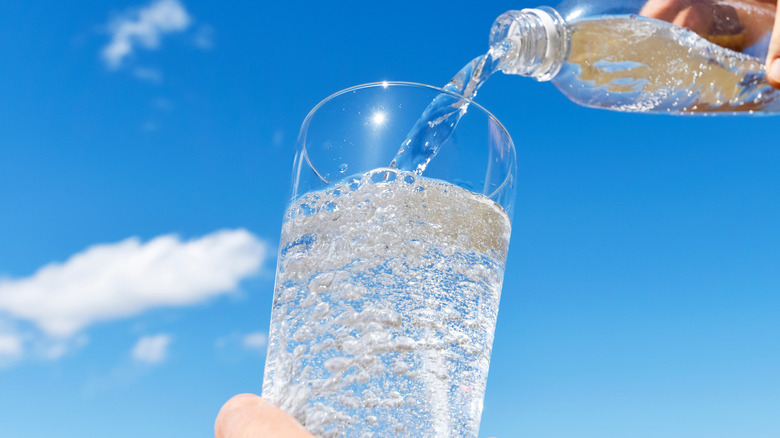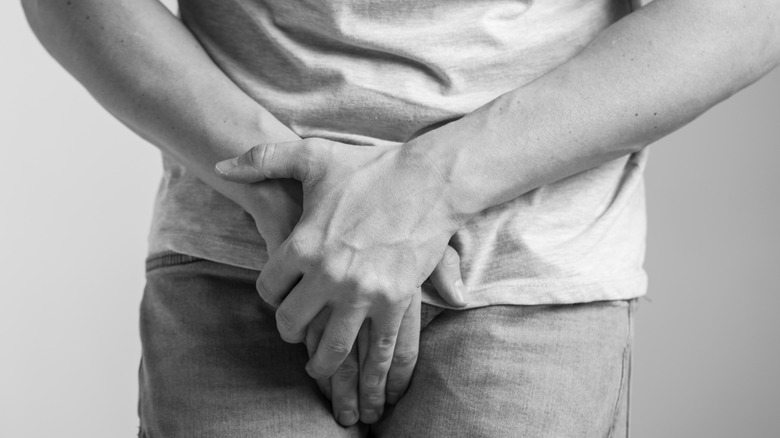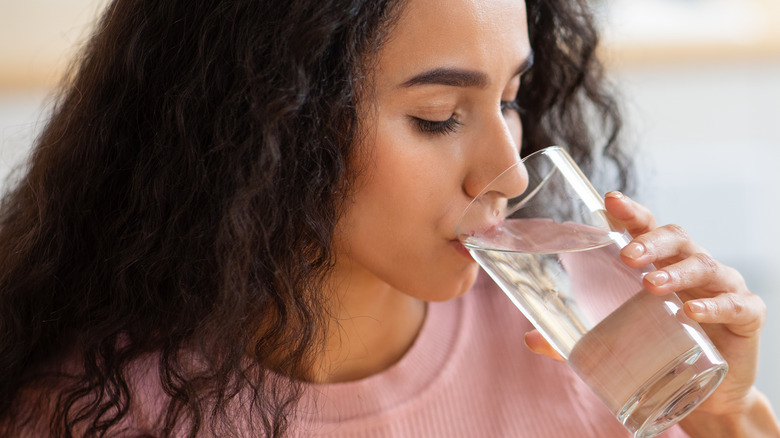How Sparkling Water Impacts Your Bladder
Sparkling water has long been accepted as soda's much healthier cousin — all of the satisfying fizz and none of the sugar or harsh chemicals. That's because sparkling water is simply water injected with carbon dioxide under pressure. While some brands might contain naturally occurring minerals or a touch of added salt to enhance the taste, you're basically just getting a bottle of water with gas when you buy sparkling water (per Healthline).
However, within some circles, there is growing concern that the carbonation in sparkling water might have some sneaky side effects that can affect some important parts of the body, including the bladder. Because carbonated water is acidic, some fear its impact on the body's pH levels as well. Furthermore, how does sparkling water affect your dental health, if at all? Is your tooth enamel at risk when you sip on this type of beverage? Let's separate myths from facts.
How does sparkling water affect the bladder?
In our current food and beverage landscape, sparkling water is pretty inoffensive, all things considered. However, it might not be the best thing for those of us with bladder issues. While speaking with Well+Good, Dr. Austin DeRosa, a urologist and urologic oncologist with UCHealth, said that sparkling water won't cause damage to the bladder. However, the carbon dioxide can irritate the bladder lining, exacerbating any underlying bladder issues that are already present.
According to the Urology Care Foundation, overactive bladder (OAB) is marked by a set of symptoms including the urgent need to urinate, frequent urination throughout the night and day, and, in some cases, minor bouts of incontinence. A whopping 30% of men and 40% of women in the U.S experience symptoms of OAB. The Johns Hopkins Women's Center for Pelvic Health lists carbonated beverages as one of the most notable bladder irritants. It suggests restricting them (among other things) to help significantly reduce symptoms.
Should you be cutting out sparkling water?
Unless you played detective and used elimination diet tactics to sniff out sparkling water as a trigger for your bladder symptoms, the bubbly beverage is actually a pretty good drink option. A 2016 study published in the American Journal of Clinical Nutrition found that sparkling water was just as hydrating as still water, meaning it will most definitely count toward your daily water intake. In fact, the Centers for Disease Control and Prevention recommends it to people trying to give up sugary drinks in favor of water. According to Healthline, sparkling water has even been credited for improved swallowing ability, relieving constipation, and contributing to feelings of fullness.
If you do think sparkling water is making you run for the bathroom but you just can't quit the stuff, pelvic floor physical therapist Alica Jeffery Thomas told the Pelvic Awareness Project that you might not have to. She recommends lending 25% of your daily water intake to sparkling water and 75% to no-frills — plain old still water is still best for keeping those big bad bubbles from bugging your bladder.



